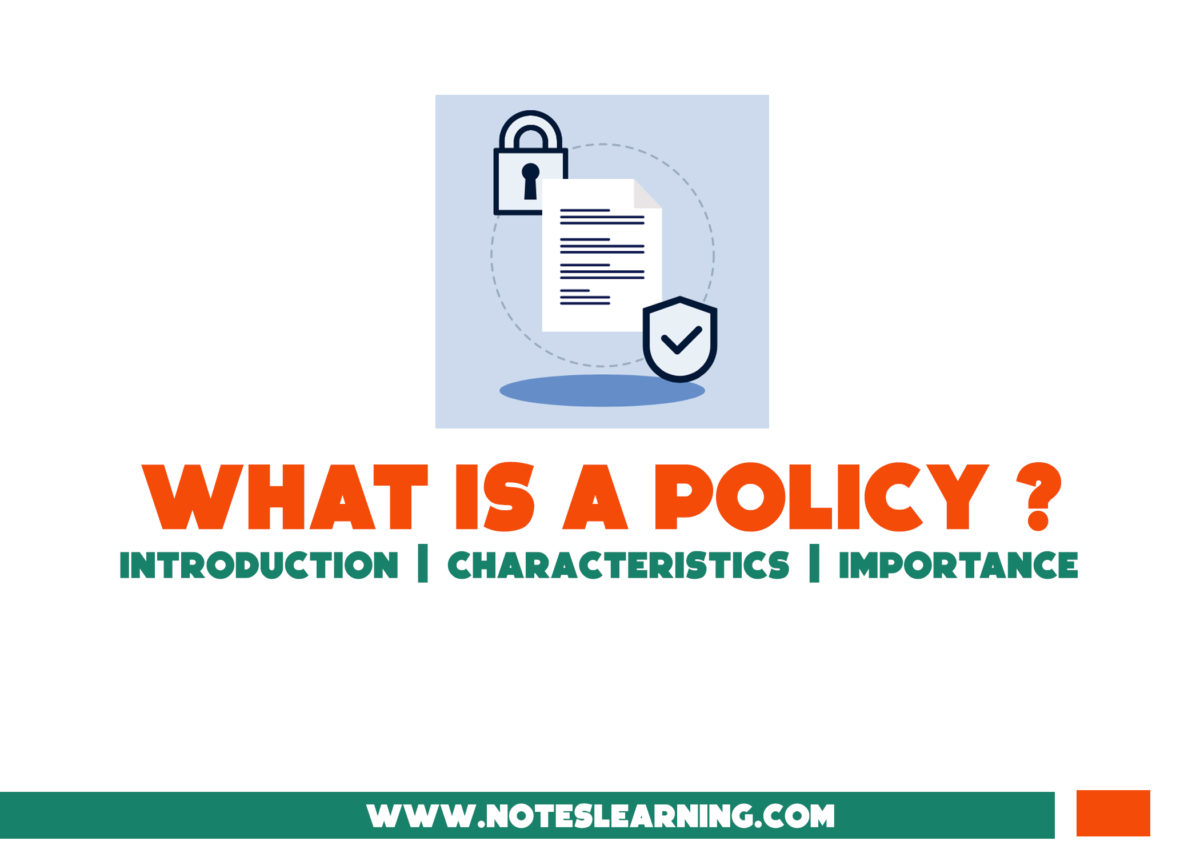Meaning and Definition of Policy
A policy is a set of guidelines that an individual, company or organization follows to ensure best practices. Policies help to make sure that there is consistency and clarity in what needs to be done. Policies generally are in alignment with organizational values. Top level management often creates and communicates policies through training programs and written procedures.
According to Dale Yoder, “A policy is the statement or general understanding which provides guidelines in decision-making to members of an organization in respect to any course of action.”
Need and Importance of a Policy
Policy stands as a guideline to the organization. Policy formation is essential for effectiveness and efficiency in an organization. Some of the need and importance of a policy are:
- Policy allows individuals to behave in a certain expected way. This lets businesses achieve their objectives more efficiently.
- Policies are guidelines and at difficult times, stakeholders can act in alignment with policies to resolve the issue.
- Set policies make sure that organization’s processes do not vary or slump over time. This maintains consistency in the organization.
- Policies ensure credibility and accountability. When an organization consistently follows their set policies and guidelines, the organization can defend all the allegations.
- Another importance is that policy provides clarity. It is the policy that clarifies what companies require. Policies are clear and simple.
- They assist in quick and effective decision making. Policies provide guidelines for different situations. This provides clarity and assist in decision making.
Apart from all these importance, policies can assist in various other activities like;
- Delegation of authority
- Motivation and Teamwork
- Process evaluation
- Uniformity in process
- No Exploitation
Characteristics of a sound policy
Policy is a set of guidelines that address the activities of an individual, group, or organization. Policies can be written in a formal document or just by word of mouth. Policies are used to regulate and guide the actions or behaviors of an individual or group.
Not all the policies are effective in delivering what is expected. There are many times when organizations bring changes to the policies, as they were not effective. Of many characteristics, there are some characteristics which make a policy an effective one. Some of such characteristics are:
- A good policy is always in alignment with objectives of the company.
- Policy needs to be definite and simple.
- A good policy needs to communicate well.
- A policy needs to be adequate i.e. cover what is required.
- A sound policy ensures understanding and uniformity.
- A good policy is flexible and acceptable.
- A policy needs to be evident and realistic.
- Another characteristic is that a policy needs to be practical.
Factors influencing Policy Making
There are several factors influencing policy making. Some factors are visible and some factors are invisible. Some important factors are presented below:
- Government regulation and control
- Objectives of the organization
- Business Environment
- Business Competition and Competitors
- Perception of owner and top management people
- Consumer and Consumer Behavior
- Public attitudes and behavior
- Structure and capabilities of organization
- Resource availability and constraints
- Ideology and belief of owner or executive management
References


